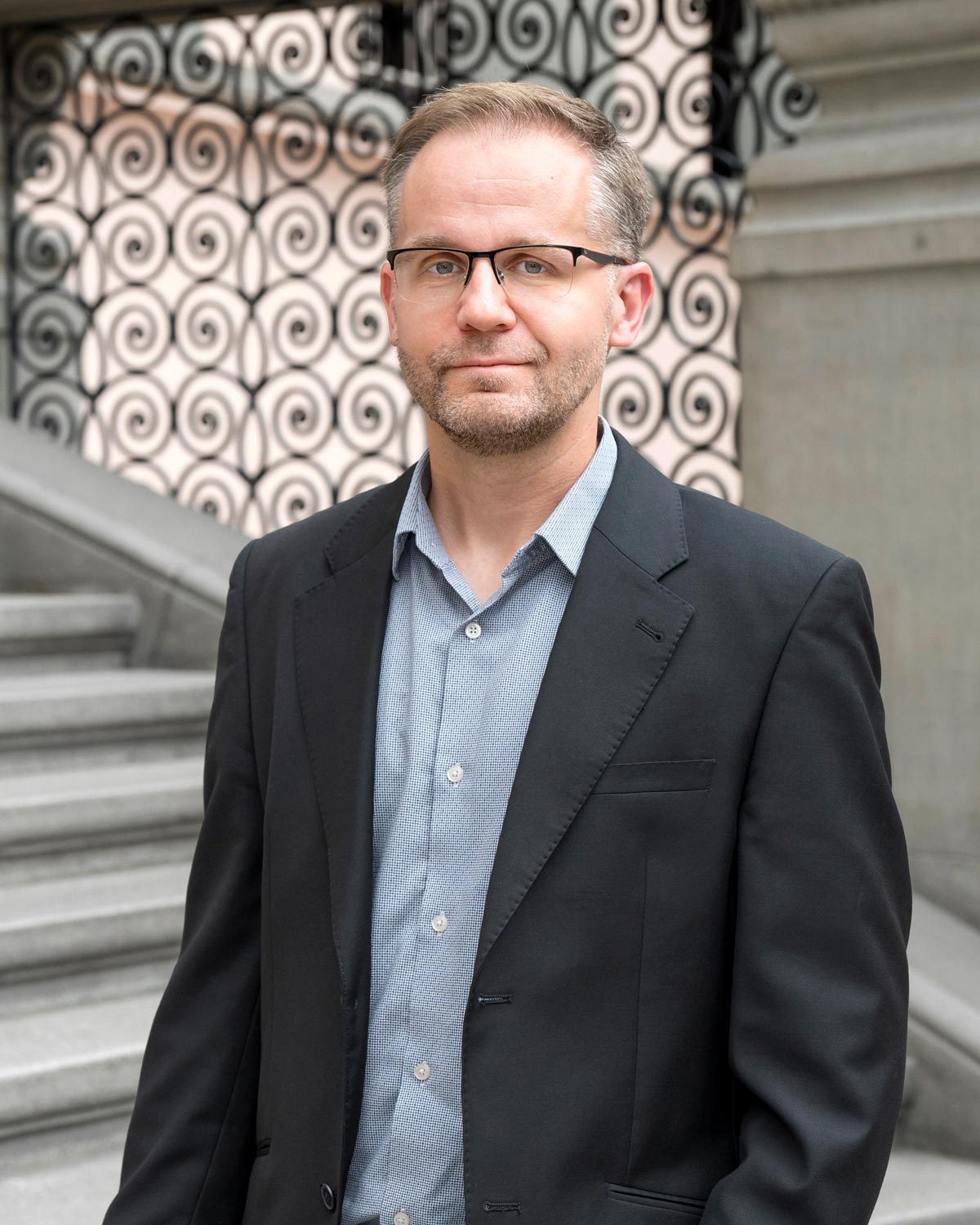Jump directly to
Predictability, heterogeneity and selection
Why do some people remain stuck in long-term unemployment while others quickly achieve re-employment? A new study sheds light on the predictability and hidden patterns of long-term unemployment.
This article by Tessa Rauber was originally published on the UZH Department of Economics website. Translated and edited for layout purposes by the UBS Center.
A recent study by Andreas I. Mueller, Professor of Macroeconomics and Labor Markets and Affiliated Professor at the UBS Center, together with Johannes Spinnewijn (LSE), uses Sweden’s comprehensive administrative registers (1992 2016) to ask: Is it possible to predict who will become long term unemployed, and why does job finding get harder the longer someone is out of work?
A comprehensive dataset
The researchers linked basic demographics (age, education, gender) with a comprehensive dataset: past earnings, employment history, benefit claims, previous employers, occupation, assets and IQ scores. This data rich environment enabled them to train a machine learning model (an ensemble of LASSO, gradient boosted trees and random forests) to forecast the chance of finding a job within six months of a spell’s start. The model explained about 15 % of the variation in actual job finding outcomes, which represents more than twice the amount obtained when using only basic demographics. While the inclusion of variables such as occupation, assets, or IQ resulted in only modest improvements in predictive accuracy, other factors, such as recent employment and earnings history, accounted for the majority of the boosts. In other words, the richer the background picture, the better the prediction.
Hidden differences
When the cohort of job seekers experienced multiple unemployment spells, the analysis uncovered unobserved heterogeneity (differences not captured by the data) accounting for roughly half of the observable gap. Combining both sources raised the lower bound on predictable variation to at least 19 %.
Why finding a job gets harder
Swedish job finding rates drop sharply as a spell lengthens (from 70 % at the start to 55 % after six months). The study shows that at least half of this decline is due to selection: those who stay unemployed longer are, on average, the individuals who already had lower chances of finding work to start with. While selection is important to explain long-term unemployment, the study also finds that everyone’s job finding odds fall during downturns. In other words, the composition of the unemployed pool does not explain the rise in long term unemployment during recessions: it’s the macro economic shock itself.
Redefining employment support
The study finds that whether an individual finds a new job quickly or remains unemployed for a long time is surprisingly predictable from the very start of their unemployment spell. In fact, much of the drop in hiring over time happens because those with the lowest chances of finding work remain unemployed longer, not simply because people become less employable the longer they are out of work. These insights suggest that job support programs could be more effective if they identify and assist those at highest risk earlier on. In ongoing research, Andreas Mueller and his co-author are tackling this issue further by looking at how individuals of high and low risk are responding to job search counseling.
Why do some people remain stuck in long-term unemployment while others quickly achieve re-employment? A new study sheds light on the predictability and hidden patterns of long-term unemployment.
This article by Tessa Rauber was originally published on the UZH Department of Economics website. Translated and edited for layout purposes by the UBS Center.
A recent study by Andreas I. Mueller, Professor of Macroeconomics and Labor Markets and Affiliated Professor at the UBS Center, together with Johannes Spinnewijn (LSE), uses Sweden’s comprehensive administrative registers (1992 2016) to ask: Is it possible to predict who will become long term unemployed, and why does job finding get harder the longer someone is out of work?


Literature
The Nature of Long-Term Unemployment: Predictability, Heterogeneity and Selection Andreas I. Mueller & Johannes Spinnewijn Journal of Political Economy, 2025
Contact
Andreas I. Mueller holds the Professorship for Macroeconomics and Labor Markets at the Department of Economics at the University of Zurich and is an Affiliated Professor at the UBS Center for Economics in Society. Prior to joining the University of Zurich, he was an Associate Professor at UT Austin and Columbia Business School. Mueller received his doctorate from the IIES, Stockholm University, and was awarded the Arnbergska Prize for his dissertation work by the Royal Swedish Academy of Sciences. His research spans a broad spectrum of issues in macroeconomics, labor economics, and monetary economics and has been published in leading academic journals such as the American Economic Review, Econometrica, the Journal of Political Economy and the Review of Economic Studies and covered in the Economist, New York Times, Wall Street Journal and Financial Times. Professor Mueller is a Research Affiliate at the Center for Economic Policy Research (CEPR), a Research Fellow at the Institute of Labor Economics (IZA), and an Associate Editor at the Swiss Journal of Economics and Statistics and the Journal of Monetary Economics.
Andreas I. Mueller holds the Professorship for Macroeconomics and Labor Markets at the Department of Economics at the University of Zurich and is an Affiliated Professor at the UBS Center for Economics in Society. Prior to joining the University of Zurich, he was an Associate Professor at UT Austin and Columbia Business School. Mueller received his doctorate from the IIES, Stockholm University, and was awarded the Arnbergska Prize for his dissertation work by the Royal Swedish Academy of Sciences. His research spans a broad spectrum of issues in macroeconomics, labor economics, and monetary economics and has been published in leading academic journals such as the American Economic Review, Econometrica, the Journal of Political Economy and the Review of Economic Studies and covered in the Economist, New York Times, Wall Street Journal and Financial Times. Professor Mueller is a Research Affiliate at the Center for Economic Policy Research (CEPR), a Research Fellow at the Institute of Labor Economics (IZA), and an Associate Editor at the Swiss Journal of Economics and Statistics and the Journal of Monetary Economics.